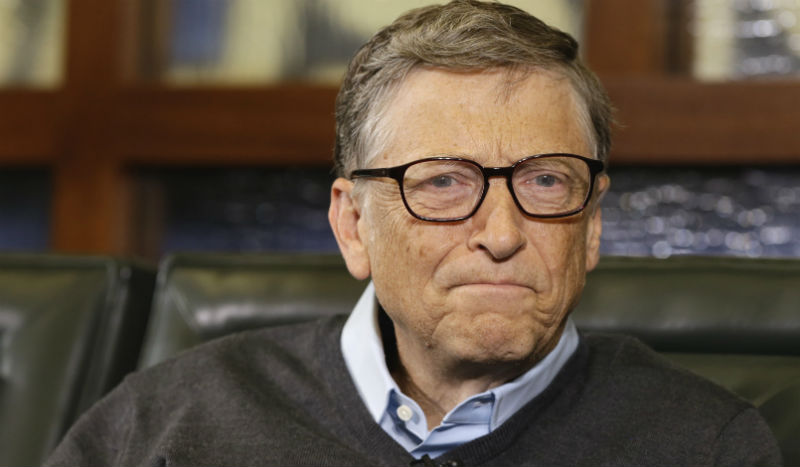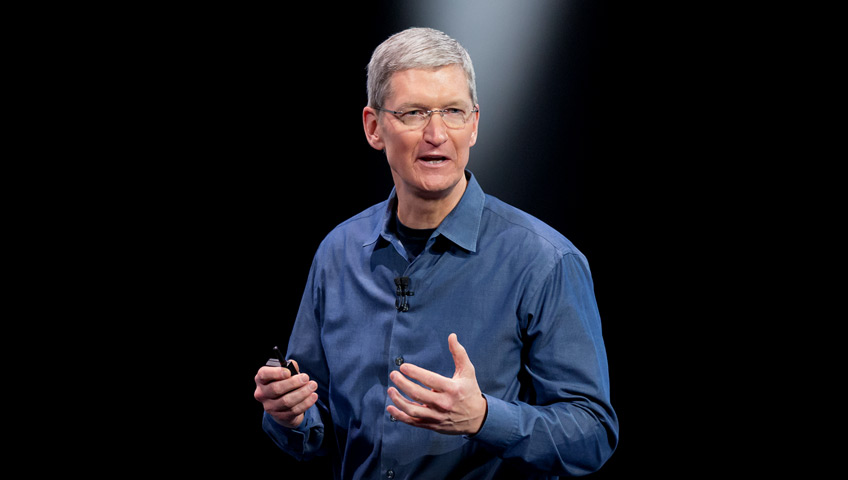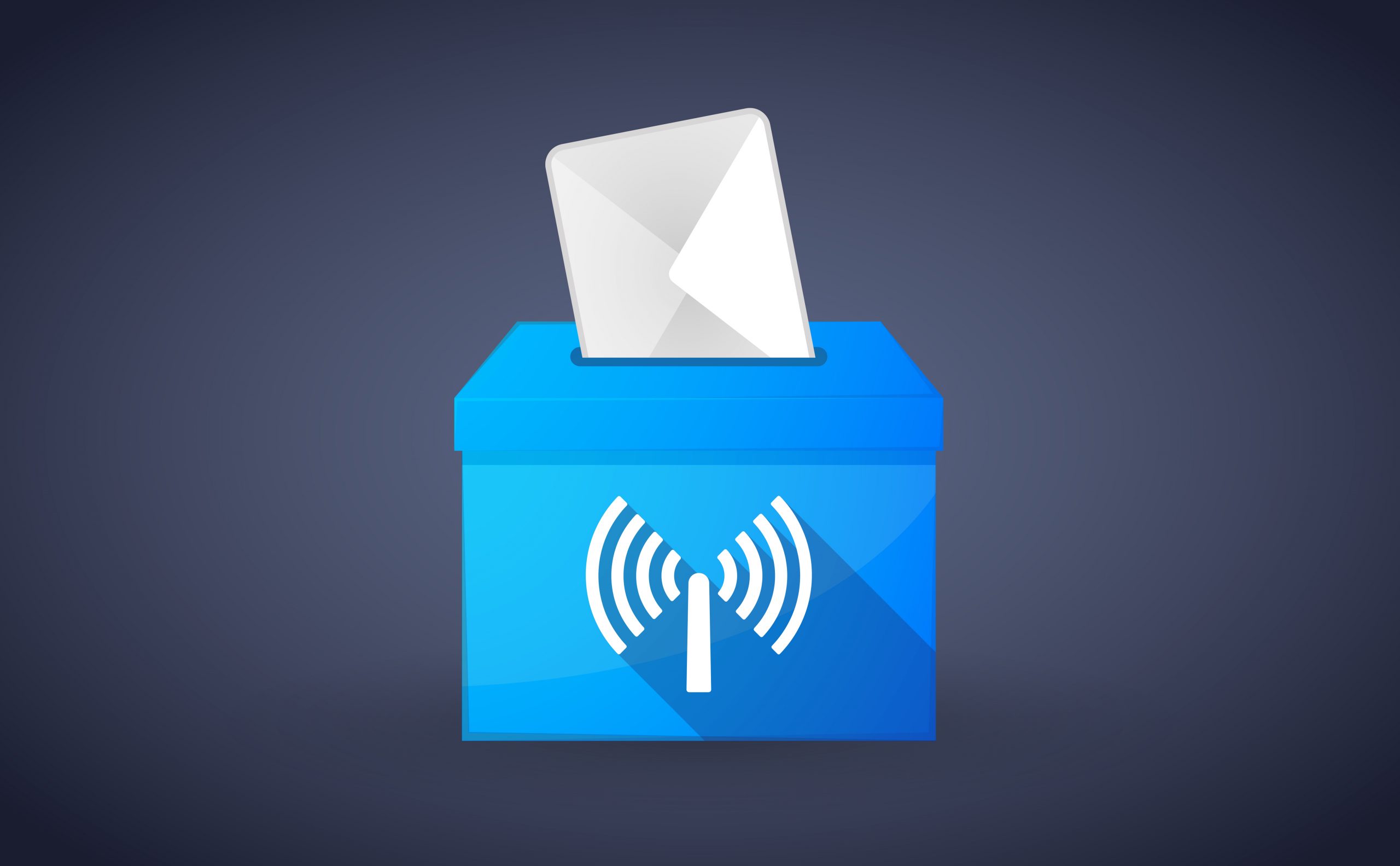
IT security professionals don't trust politicians to produce effective regulations
Trust in politicians is at something of a low at the moment and at the same time we regularly see them calling for cyber measures, like backdoors to encryption, without seemingly understanding the implications.
The results of a new survey therefore shouldn't come as too much of a surprise.

Would a Trump administration allow Google to sell Motorola to Lenovo?
I don't want to start an argument about politics. My sentiment this lovely day derives from what the incoming White House is, not what so many people here in California want it to be. I wonder: If Google bought Motorola during a Trump presidency, rather than Obama regime, would later sale to Lenovo be allowed or closing of the Texas phone-assembly factory about 18 months after opening?
The question arises from a pique of sadness as I look at the FedEx tracking information for two Motorola phones purchased directly from Lenovo. City of origin: Wuhan, China. My last Moto came from the Lone Star State, here in the USA. I pine for what might have been, remembering my excitement about Google's $12.5 billion Motorola Mobility acquisition, in August 2011. My opinion expressed then remains: "The acquisition is bold for its risks, which are no less great than the benefits". I was no fan of the later sale to Lenovo.

Microsoft stands with Apple against the FBI
Microsoft will join Apple against the FBI and U.S. Justice Department, filing a friend-of-court—or amicus—brief in a case going to court tomorrow. The government wants Apple to create a special version of iOS, referred to by critics as FBIOS, to break into an iPhone 5c security feature. The device manufacturer argues that compliance would set a precedent that would give law enforcement carte blanche with other mobile devices.
Brad Smith, Microsoft's chief legal counsel, says the company "wholeheartedly supports Apple"—a statement that eradicates any potential confusion caused by cofounder Bill Gates. In an interview with Financial Times two days ago, Gates supported the government's demands. I responded, calling his position a "catastrophic occurrence that demands current chief executive Satya Nadella's official response. There needs to be clear policy about government backdoors and the position with respect to the San Bernardino shooting iPhone". The company's position is now unequivocally clear—presuming the legal filing fits with "wholeheartedly".

Bill Gates is wrong
I see something disingenuous about Microsoft cofounder Bill Gates supporting the government's demands that Apple selectively unlock an iPhone used by one of the San Bernardino, Calif. shooters. The former CEO turned philanthropist spoke to the Financial times in an interview posted today. The implications for Microsoft cannot be overstated, and the company's current chief executive should state corporate policy.
Gates' position aligns with the government's: That this case is specific, and isolated, and that the demand would merely provide "access to information". Here's the thing: The interviewer asks Gates if he supports tech companies providing backdoors to their smartphones. The technologist deflects: "Nobody's talking about a backdoor". Media consultants teach publicly-facing officials to offer non-answers exactly like this one. The answer defines the narrative, not the interviewer's question.

Tim Cook is absolutely right
Some documents are historically significant. They mark moments, comment on them, in manner demanding future citation and even use in courts or classrooms. That's how I read Apple CEO Tim Cook's "Open Letter to Our Customers", about breaking iPhone encryption. His exposition spotlights seminal moment in the United States of America: Government's further expansion of powers encroaching indiviuals' rights to privacy and one company standing up and saying "No".
Some people will scoff at my comparison, but it truly is what I see. Cook is like Rosa Parks, refusing to take a seat at the back of the bus—or in this instance behind one court judge and the FBI. Cook and Apple stand up for us all. I applaud law enforcement's efforts to protect us from terrorism but tyranny shouldn't be the means; taking away Constitutionally-given freedoms to protect them. Tim Cook is right.

Tim Cook is an opportunist
Nine years ago, a NPR interviewer asked me about Google and other U.S. companies censoring search results in China. The question was one of morality -- to which I gave answer she didn't expect. That response, or my recollection of it, is appropriate for rather ridiculous and self-serving statements that Apple CEO Tim Cook reportedly made two days ago.
"We believe that people have a fundamental right to privacy", Cook said, Matthew Panzarino reports for TechCrunch. "The American people demand it, the constitution demands it, morality demands it". Oh? What is moral? The answer I gave NPR in 2006 applies: There is no moral high ground in business. The high ground is quagmire, because all public companies -- Apple surely among them -- share a single, moral objective: Make profits for stockholders. Plain, pure, and simple.

Broadband policy could affect how 1 in 5 UK residents vote
If you live in the UK it probably won't have escaped your notice that there's an election campaign underway. But could your broadband connection affect the way you vote?
According to a survey from broadband, TV and mobile comparison site Cable.co.uk almost one in five (18 percent) of 2,500 people polled say that broadband policy could affect the way they vote.

Net Neutrality: When you are the competitor
As the Net neutrality debate rages and feels fresh, it's easy to forget just how long this thing has been raging. While searching for a post over at my personal website I stumbled onto a forgotten analysis from April 2006, when I lived on the East Coast and had Verizon FiOS.
Critics complain the Federal Communications Commission seeks to create two Internet Information Highways -- one fast lane and the other slow. But something I identified 7 years ago is still relevant today.

Amazon, Google, Microsoft and others band together in petition to FCC
If you've just crawled from beneath a rock then you may not be aware that Chairman Wheeler, head of the Federal Communications Commission, is proposing new rules regarding net neutrality. The current chairman is a former lobbyist and certainly can expect to land a posh position when his tenure ends. While that is Washington DC politics in a nutshell, it doesn't mean things must remain status quo.
Before getting to the open letter in question, a bit of background is in order. First, you can find the organization's "open internet" guidelines here. However, it is not all what it appears to be on the surface. The proposal from Tom Wheeler gives service providers, the likes of 600 pound gorilla Comcast, the right to prioritize traffic. This is something the cable/ISP companies have been doing for sometime in a successful effort to get money from places like Netflix.

Yeah, let's 'band' Fagioli from BetaNews
Reader reaction to Brian Fagioli post "Sorry Netflix, but you should pay 'tolls' to ISPs" is quite dramatic. Three-hundred-thirty comments later, some of you demand his head. There is even petition "Band Brian Fagioli from Beta News", in response to the post. I assume the petition creator means "ban" but band is good enough for me. Brian is one of the group.
The story requires no editorial response but I give one anyway. Earlier, a reader emailed that he is done with BetaNews. I think my reply to him will benefit other readers, so I share it, slipping in some additional commentary. I hope this answer will illuminate our editorial policies.

Google Drive price cut gives a little and takes a lot
This week, World Wide Web inventor Tim Berners-Lee calls for a "bill of rights" for the Internet. Much of the media coverage focuses on governments, but I see corporations as greater concerns. Who has more direct access to your stuff? Google is front and center, but by no means alone, profiting from your content.
Today's big Google Drive price cut -- $1.99 and $9.99 monthly down from $4.99 and $49.99 for 100GB and 1TB, respectively -- makes me wonder. The search and information giant offers more value for less money. The question: Who benefits more? Customers paying less, or Google getting their business? I have to wonder when, if not already, the company will use contextual data gathered from your Drive for targeted everything, from Now to ads and more.

Tech giants' surveillance reform rally is disingenuous and self-serving
I'll be brief, because I'm seven days now with the flu and don't feel much like writing. But today's "open letter" for global government surveillance reform demands rebuke.
I'm all for curbing government snooping, but what about corporations collecting information? Tech Giant's -- AOL, Apple, Facebook, Google, LinkedIn, Microsoft, Twitter, and Yahoo -- reform rally is disingenuous and self-serving. These same companies collect mountains of personal information for profit. So, what? It's okay for them to snoop, but not governments?

Virtual U.S. Congress: a practical, plausible way to save millions in waste
The very notion of telecommuting has been present in the mainstream white-collar workplace now for well over a decade. Yet for one of the worst offenders in padding operating and travel expenses, namely the U.S. Congress, the notion of mentioning telecommuting seems to be downright sinful. One would think that these calls for a "virtual Congress" come from watchdog groups of various political winds. But shockingly enough, one of Congress' very own -- House member Steve Pearce of New Mexico (R) -- is leading the push to bring our legislative branch full circle into the 21st century.
The premise behind the technical, and very much cultural, shift in thinking for how Congress does its business is quite down to earth. "Corporations and government agencies use remote work technology; it’s time that Congress does the same," says Pearce on a landing page for his initiative. "Members of Congress can debate, vote, and carry out their constitutional duties without having to leave the accountability and personal contact of their congressional districts." A wholesale breath of fresh air, I say.

Boycott the Internet!
What a strange coincidence: Earlier this week, Smithsonian Channel's "Air Disasters" broadcast an episode about the downing of Korean Airlines flight 007 in 1983 -- at the height of the Cold War. Turns out the Soviet Union recovered the black boxes and hid them for a decade. I'm old enough to remember the Cold War and what the United States fought against. I told my wife: "Sometimes I really wish the Soviet empire still existed, so Americans had a measure for government bad behavior". A day later, the Guardian and Washington Post broke what likely is the biggest story about U.S. surveillance since the Watergate break in. The activity stinks of behavior opposed decades ago.
The National Security Agency spies on you, in secret, something many people suspected. The NSA monitors Internet servers, without warrants. In a Google+ comment today, Joe Betsill brilliantly and succinctly captures what changed: "There's a difference between suspicion and evidence". He links to an Electronic Frontier Foundation "Timeline to NSA domestic spying". I strongly suggest reading the EFF material, in addition to the Guardian and Washington Post investigative reports -- so that you are informed.

Declare DRM freedom!
Oct. 10, 2007 is the day I threw off the chains locking my music. I purged the last DRM-protected file from my personal catalog -- and not by stealing. I purchased every track, and getting them Digital Rights Management-free wasn't easy six years ago. The base collection started from CDs. The problem: Songs purchased from iTunes, starting in April 2003. Later, Apple offered facility to remove copyright restrictions. Meanwhile, I repurchased some tunes, or just did without them.
But chains remain. Every video purchased or rented for download is DRM-protected. Far worse are ebooks. There, the unsung hero -- your advocate and champion -- is JK Rowling. In late April 2012, she released the entire Harry Potter series as ebooks, DRM-free, baby. Rowling is more than a hugely successful writer; she stands up for readers, too.
